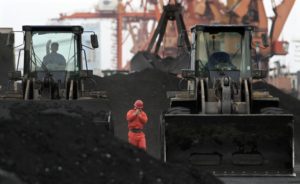by WorldTribune Staff, December 1, 2016
New UN sanctions on North Korea over its nuclear program are squarely aimed at the North’s lucrative coal exports to China.
Coal exports will be cut by about 60 percent under a strict new sales cap. Exports of copper, nickel, silver, zinc and the sale of statues will also be either slashed or banned under the sanctions.

The UN Security Council unanimously approved the sanctions after China agreed to the resolution following weeks of negotiations with the United States prompted by North Korea’s fifth and largest nuclear test in September.
The sanctions put an export cap on North Koren coal of 7.5 million metric tons, which will cost it $700 million in lost earnings compared with 2015 sales. China is believed to be the only state that buys North Korean coal.
UN Secretary-General Ban Ki-moon said the sanctions sent an “unequivocal message that the DPRK must cease all the provocative actions and comply fully with its international obligations”.
Samantha Power, the US ambassador to the UN, admitted that “no resolution in New York will likely tomorrow persuade Pyongyang to cease its relentless pursuit of nuclear weapons.” But, she said, “unprecedented costs” were being placed on North Korea for defying the international community.
According to an Oct. 18 report by Geostrategy-Direct, the U.S. Justice Department filed criminal charges against a China-based company, Dandong Hongxiang Industrial Development Company, and four of its executives in September for conspiring to evade sanctions, and the Treasury Department barred them from future business dealings with the U.S.
According to an Oct. 4 Geostrategy-Direct report, U.S. Justice Department coordinator for sanctions policy Daniel Fried said the U.S. was “looking hard and actively” at North Korea’s coal trade, saying that coal exports are “the largest single generator of foreign currency for the North Korean economy.”
